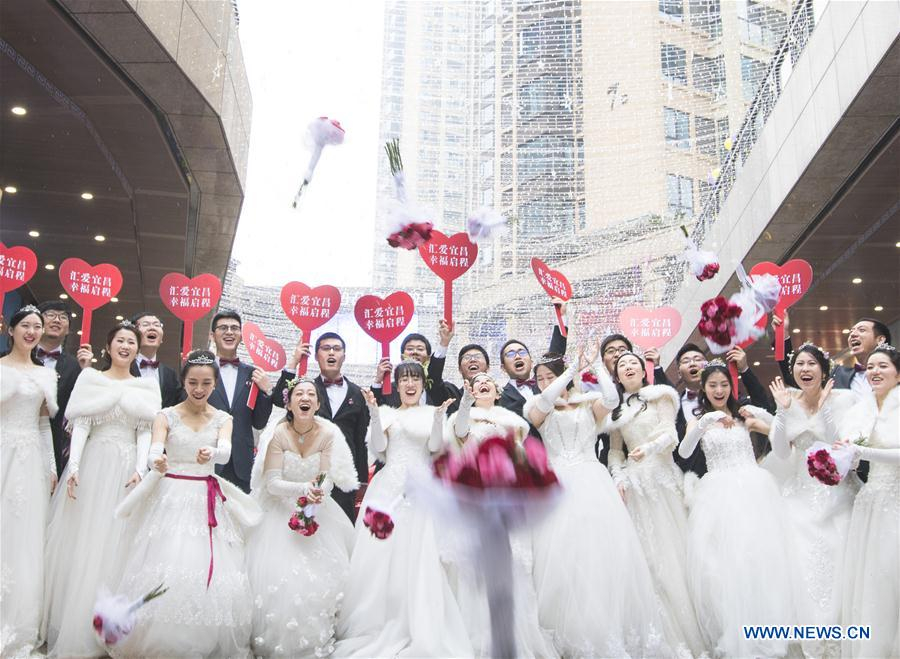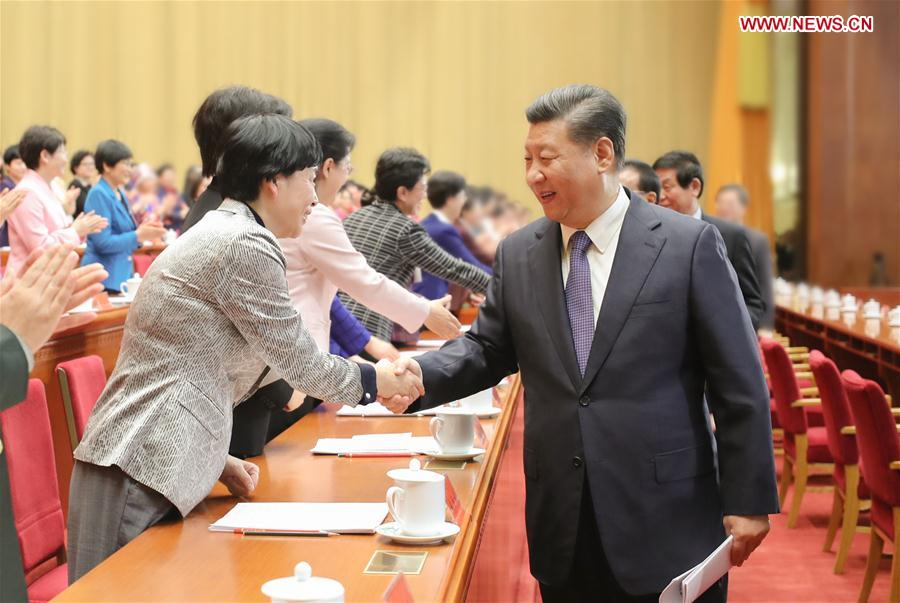
The world's business and political elite have gathered in the Swiss mountain resort of Davos for the World Economic Forum's (WEF) annual meeting this week, but only 24 percent of attendees are women, according to business news platform Quartz.
For the Asian labor force, progressive attitudes towards gender equality held in the domestic sphere, rather than the professional world, could be the source of change.
"Asian couples are very good at talking about their ambition," Jennifer Petriglieri, professor of organizational behavior at INSEAD business school and author of the new book "Couples That Work," told CGTN.
Asian couples are more open to discussing their career goals and how to achieve them with each other in comparison to their European counterparts, Petriglieri's qualitative research shows, following interviews with over 100 couples from across the world, 30 percent of which were based in the Asia Pacific region.
The academic spoke to couples aged 26-63 and of various sexual orientations. Just under 60 percent of those interviewed pursued careers in the corporate world.
China's ambitious women
The number of dual-working couples is on the rise globally. But attitudes and lifestyles in China, in particular, are conducive to women being more vocal about their drive to succeed professionally.
"In China, it's easier for women to express their ambition than say, in Japan or South Korea," Petriglieri said, contrasting cultural differences in the Far East. "Both men and women are equally ambitious."
Contributing to this is the family arrangement typical to some Asian cultures, in which there is more domestic help available and more active involvement from grandparents and other relatives.
Meanwhile, in Europe and in particular the UK, "ambition can be a little bit of a dirty word," Petriglieri said. This especially applies to women. "There tends to be a negative stigma around that ambition, less so in Asia," she detailed.
East Asia still behind on gender parity in workplace
But while couples in Asia may be more openly ambitious, figures repeatedly show that the gender balance is more equal in the West.
It will take 163 years to close the gender pay gap in East Asia, according to the Gender Pay Gap Report 2020 by the WEF, released in December last year. This is in comparison to 54 years in Western Europe, the region which fared best.
On the report's ranking of its global gender gap index in 153 countries, China fared 106th, while South Korea and Japan came in at 108 and 121, respectively.

Chinese President Xi Jinping shakes hands with delegates at the 12th National Women's Congress in Beijing, China, October 30, 2018. /Xinhua, Ju Peng
Chinese President Xi Jinping shakes hands with delegates at the 12th National Women's Congress in Beijing, China, October 30, 2018. /Xinhua, Ju Peng
In China, 9.7 percent of the corporate board members are women, in comparison to the OECD average of 22.3 percent, the WEF said.
Yet, according to China's National Bureau of Statistics, 43.7 percent of the total employed population were women in 2018, exceeding the official target of "maintaining above 40 percent."
"Gender equity is further apart in Asia" than in Europe, Petriglieri said, and "social pressures for women to conform to gender roles is very strong," for example, in the home.
But this could be set to change as dual-working couples increasingly become the norm. According to Petriglieri, nearly 60 percent of the couples in China are now dual-working, with this figure above 70 percent for under 45s.
"The ambition gap has closed," she said. In addition, the aspiration to smash through gender stereotypes does not just apply to the female labor force. According to Petriglieri, a lot of men are catching up with women in that "they want to be more hands-on than perhaps their fathers were."
Chinese netizens keep ambition close to their chests
In a CGTN Weibo poll about discussing ambition generally and not just with a partner, only 48 respondents, or 7.2 percent, out of 663 said that they talked about their ambitions a lot. 330 Weibo users, or 49.8 percent of participants, said that they didn't usually talk about their ambitions. Meanwhile, 285 people, or 43.0 percent, said that they only discussed their ambitions with a few people.
Suggesting a reason for Petriglieri's conclusion, "What matters most in Chinese families is the family's economic profit, while in Europe families it's the couple's sense of happiness and mutual respect," commented one user, @Nopephase.
Others on Weibo believed that communication and shared ambition were key to a happy relationship, with @林林林0819 saying that "If I can spend the rest of my life with someone who shares the same goal with me, it would be nice."
Additional reporting by Wang Le and Wei Tianyao.
(Cover: A group wedding ceremony for 22 couples on a construction site in Yichang City, central China's Hubei Province, December 23, 2017. /Xinhua, Xiao Yijiu)